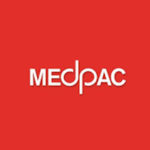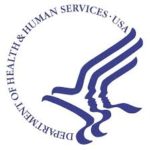The following is the latest health policy news from the federal government for January 6-12. Some of the language used below is taken directly from government documents.
Renewal of COVID-19 Public Health Emergency Declaration
- HHS Secretary Xavier Becerra has signed an order extending the previous declaration of a COVID-19 public health emergency. This declaration extends the emergency to April 11. The administration continues to assure stakeholders it will provide 60 days’ notice prior to the end of the public health emergency.
 MedPAC Medicare Rate Recommendations
MedPAC Medicare Rate Recommendations
- Every year MedPAC recommends to Congress rate increases for the different kinds of health care providers for the coming year. While MedPAC’s recommendations are not binding, they are highly respected and often find their way into future public policy. MedPAC commissioners are holding public meetings today and tomorrow (January 12 and 13) and so far have offered the following recommendations:
-
- Hospital payments – an increase of what current law calls for plus one percent, a transition to beginning to distribute Medicare DSH and uncompensated care payments through a new Medicare safety-net index (MSNI), and an increase of $2 billion in the MSNI pool.
- Physician payments – an update of 50 percent of the projected increase in the Medicare economic index and a 15 percent add-on payment for primary care clinicians and five percent for non-primary care physicians for fee schedule services provided to low-income Medicare beneficiaries.
- Outpatient dialysis services – update by amount determined under current law.
- Hospice – update by amount determined under current law and wage-adjusted and reduce hospice aggregate cap 20 percent.
- Skilled nursing facilities – reduce base payment rate three percent.
- Home health – reduce base payment rate seven percent.
- Inpatient rehabilitation services – reduce base payment rate three percent.
Centers for Medicare & Medicaid Services
- To facilitate the collection of health-related social needs data, the CDC is introducing 42 new diagnosis codes into ICD-10-CM for reporting effective April 1 and CMS is introducing 34 new procedure codes into ICD-10-PCS, also effective April 1. Learn more from this CMS notice.
- CMS has sent a memo to state Medicaid officials providing a detailed description of the configuration/implementation plan, testing plan, and testing results that states will need to submit to the federal government when the public health emergency and continuous Medicaid enrollment end. This document seeks to help states understand systems readiness artifacts that are routinely submitted to CMS’s state systems team during IT project and certification reviews and also includes key dates and activities for states, including those involving the expiration of the continuous enrollment of Medicaid participants, the Medicaid unwinding timeline, and dates for the submission of required documentation. Find the memo here.
- CMS has shared a presentation with states addressing how they can work with Medicaid managed care plans to review the eligibility of current Medicaid beneficiaries once the continuous eligibility requirement for current Medicaid participants ends on April 1. Learn more from the CMS presentation “Strategic Approaches to Engaging Managed Care Plans to Maximize Continuity of Coverage as States Resume Normal Eligibility and Enrollment Operations.”
- CMS has opened the Medicare Electronic Application Requests Information System (MEARIS) portal for applications for section 126 graduate medical education (GME) residency slots. The deadline for applying is March 31. Go here for further information.
- CMS has awarded the first 200 of 1000 new Medicare-funded physician residency slots, created by the FY 2022 Medicare inpatient prospective payment system rule, to enhance the health care workforce and fund additional positions in hospitals serving underserved communities. Approximately three-quarters of the new positions will be for primary care and mental health specialties. Learn more about the new positions and find a link to a list of the awarded slots from this CMS news release.
- The weekly edition of CMS’s MLN Matters, its online newsletter with information about Medicare reimbursement matters, includes features on Medicare payments for cognitive assessments; a new indicator in clinicians’ Medicare Compare profiles to show if they provide telehealth services; the 2023 clinical diagnostic laboratory fee schedule; an FAQ about modifiers to use when billing for Part B-covered discarded drugs and biologicals; and more. Find it here.
- CMS has published new tip sheets for post-acute-care providers – home health agencies, inpatient rehabilitation facilities, long-term-care hospitals, and skilled nursing facilities – to help them with their COVID-19 quality reporting program responsibilities. Learn more from this CMS notice.
 Department of Health and Human Services
Department of Health and Human Services
- HHS’s Health Resources and Services Administration (HRSA) has published a tip sheet for how providers should bill for telehealth services.
- HRSA has updated its list of current funding opportunities in the areas of health workforce, health centers, maternal and child health, and programs offered by the Federal Office of Rural Health Policy and the HIV/AIDS bureau. Go here to see the updated list (and scroll down) and go here for a comprehensive directory of HRSA funding opportunities.
- HHS has updated its directory of funding opportunities for telehealth and broadband-related programs.
- HHS’s Office of Information Security and its Health Sector Cybersecurity Coordination Center have issued a warning about Clop ransomware, which first appeared in 2019 and has been directed at health and human services organizations. The notice outlines changes in how Clop is being used and offers resources for further information. Find the HHS notice here.
- HHS has awarded nearly $245 million in Bipartisan Safer Communities Act funding – $185.7 million from the Substance Abuse and Mental Health Services Administration (SAMHSA) and nearly $60 million from HRSA – to support youth mental health, help the health care workforce address mental health needs, and fund other critical mental health supports. Learn more about the specific programs for which grants were awarded and find links to lists of grant recipients from this HHS news release.
Food and Drug Administration
- The FDA has published information explaining that COVID-19 XBB.1.5 subvariant, currently responsible for 28 percent of COVID-19 cases in the country, may not be treated successfully by the drug Evusheld and offering guidance to health care providers treating COVID-19 patients. See the FDA update here.
Centers for Disease Control and Prevention
- The CDC has created a new Center for Forecasting and Outbreak Analytics. The mission of the new office is to advance U.S. forecasting, outbreak analytics, and surveillance capacities related to disease outbreaks, epidemics, and pandemics to support public health response and preparedness. Learn more from this notice, which includes a link to a Federal Register notice.
National Institutes of Health
- The NIH, in collaboration with HHS’s Administration for Strategic Preparedness and Response (ASPR), has launched the Home Test to Treat program, an entirely virtual community health intervention that will provide free COVID-19 health services – at-home rapid tests, telehealth sessions, and at-home treatments – in selected communities. The program will make antiviral treatment available for eligible individuals who receive a positive test result. Learn more about the program from this NIH news release.
- The NIH has updated its resources addressing how to improve rural health through telehealth-guided provider-to-provider communication.
- The NIH has awarded eight research grants to refine new technologies for early diagnosis of severe illnesses resulting from COVID-19 infection in children. Learn more about the research and the grant recipients from this NIH news release.
Medicare Payment Advisory Commission (MedPAC)
The U.S. Government Accountability Office (GAO) is now accepting nominations for individuals to become MedPAC commissioners in May of this year. The deadline for submitting nominations is February 10. Learn more from this notice, which also links to a Federal Register announcement.
 Stakeholder Events
Stakeholder Events
CMS National Stakeholder Call – January 24
CMS administrator Chiquita Brooks-LaSure, and her leadership team will discuss CMS’s key 2022 accomplishments and discuss how the agency’s 2023 priorities will advance the CMS Strategic Plan during a national stakeholder call on Wednesday, January 24 at 1:00 (eastern). Go here to register to participate.
HRSA – Women’s Preventive Services Initiative – January 24
HRSA’s Office of Intergovernmental and External Affairs and its Maternal and Child Health Bureau are hosting a webinar on the Women’s Preventive Services Initiative on Tuesday, January 24 at 3:00 (eastern) in collaboration with the American College of Obstetricians and Gynecologists. The webinar will share information about the Women’s Preventive Services Guidelines, HRSA’s cooperative agreement with American College of Obstetricians and Gynecologists to develop, review, and update recommendations for women’s preventive healthcare services, and opportunities to support implementation of the current recommendations into standard clinical practice. Go here to register to participate.
MACPAC – January 26-27
The Medicaid and CHIP Payment and Access Commission will hold a public meeting on Thursday, January 26 and Friday, January 27. An agenda for the meeting and information about joining it are not yet available but when they are they will be posted here.

 Stakeholder Events
Stakeholder Events